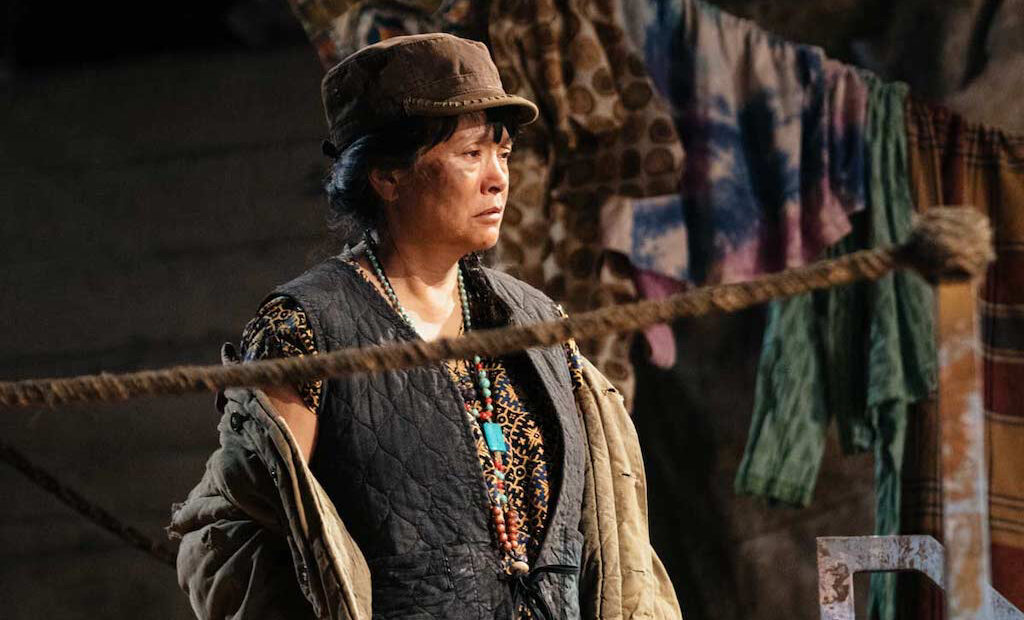Paradise at the National Theatre

The National Theatre turns to the ever-powerful Greek classics in celebration of its return to full-capacity seating. Paradise is Kae Tempest’s adaptation of the Sophocles tragedy Philoctetes. Directed by Ian Rickson, the reimagined play is set at an unspecified time and place and performed by an all-female cast. The circular stage of the Olivier is populated by three soldiers (who are male characters, as in the original) donning present day military uniforms, and nine ladies acting as the chorus (replacing the male sailors of the initial show) clad in colourful hippie-style outfits.
Philoctetes (Lesley Sharp), who was once awarded with Heracles’s bow after a display of courage, is bitten by a snake whilst fighting in the Trojan War. His injury causes him unbearable pain and emits a foul smell, so Odysseus (Anastasia Hille) decides to leave him behind on a desert island. The play begins ten years after this event, when the antagonist realises that he will need the courageous character’s skills and his bow to win the war. He returns to the island in the company of a young soldier, Neoptolemus (Gloria Obianyo), looking to persuade the abandoned hero to join them.
Predicting the deserted warrior’s hostility towards him, Odysseus assigns the difficult task of persuasion to his young accomplice, who is asked to make up a story and state that he is also an enemy of his betrayer. The honourable soldier does not wish to lie but he is also eager to fulfil his duties, so he accepts. The protagonist, while understandably wary, gradually warms up to the boy. The game of deceit becomes more complicated when their exchanges bring to the fore questions of honour, truth, and a sense of duty for one’s nation and towards others, causing Neoptolemus to falter. Meanwhile, the women who form the chorus intervene, advise and at times share their personal stories.
Sharp is phenomenal as the betrayed hero. She is the soul of the show and is aided by an engaging text that she handles with total command. Hille and Obianyo deliver great performances and the chorus blends well into the action. The delivery of political messages is not subtle, though this detracts from the play artistically, it helps it gain a more immediate, sometimes vocal, consensus from the audience. There are moments when the pace slackens, but overall the re-telling is done in a way that makes the story accessible, current and often humorous. A brilliant take on a frequently overlooked Greek classic.
Mersa Auda
Photo: Helen Murray
Paradise is at the National Theatre from 11th August until 11th September 2021. For further information or to book visit the theatre’s website here.
























Facebook
Twitter
Instagram
YouTube
RSS